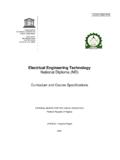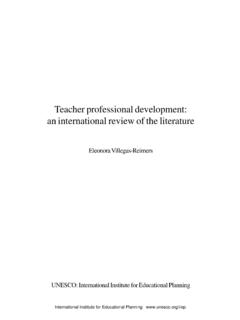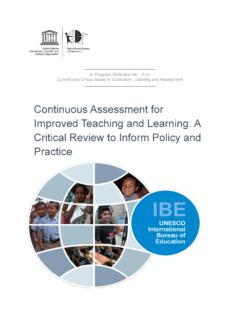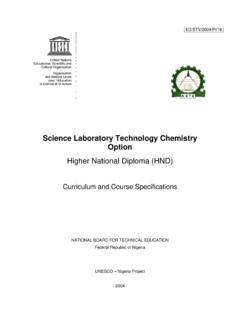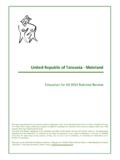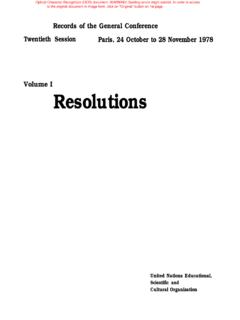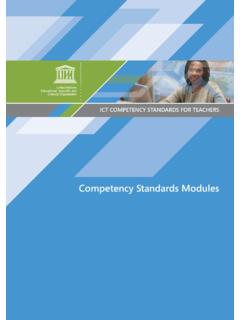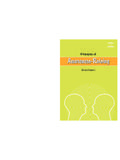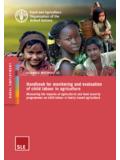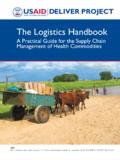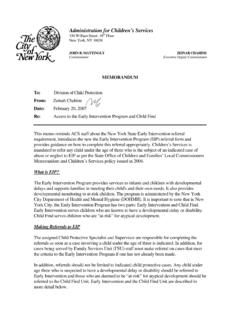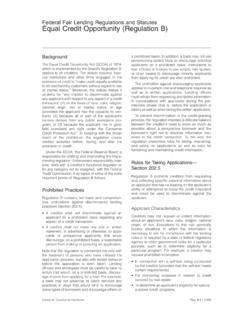Transcription of A Handbook for Teachers of Multi-Grade Classes …
1 A Handbook for Teachers of Multi-Grade Classes Volume One Improving Performance at the Primary Level Prepared by G. B. Mathot Edited by June Cezair Wallace, Hope MC Nish and John Allen Produced by June Cezair Wallace 0 A Handbook for Teachers of Multi-Grade Classes : Volume One Co-ordination: Winsome Gordon, Director, Primary Education Section, Basic Education Division. Originally compiled by Mathot. Modified and edited by June Cezair Wallace in consultation with several Multi-Grade Teachers in Jamaica; Edited by Hope MC Nish and John Allen. Line Art and photographs by Clive Wallace, with the exception of photographs on pages 42 and 59. Cover photo: 0 UNESCO. Design and layout: Monika Jost following the project prepared by June Cezair Wallace, Wallace & Wallace Associates Ltd.
2 Several ideas were extracted from A Training Manual for Teachers of Multi-Grade Schools, Grades l-3. Edited by lsoline Reid, Herma Meade and Martin Henry: Ministry of Education, Youth and Culture, Kingston, Jamaica, 1995: ISBN 976-639-010-X. 0 UNESCO 2001. Printed in France by Ag2i communication ^^. _- --- - ___- _~.. I_x-1. Preface A Handbook for Teachers of Multi-Grade Classes Every child has a right to an education. Multi-Grade Classes and single teacher schools have made it possible for many children in remote rural areas and communities to exercise this right. These Classes exist in both developing and developed countries. In coun- tries such as Norway and France, they have worked reasonably well.
3 However, in many developing countries, these Classes and schools often lack educational materials, appropriately trained Teachers and effective supervision. The Teachers rarely receive training in how to deal with them, and are ill-prepared for managing large numbers of pupils, of different ages and levels of learning, that they confront in the Classes . If progress is to be made towards Education for All, the challenges of Multi-Grade Classes and single teacher schools must be urgently met. Children in small communities must have access to good quality education. This is very relevant to children in widely dispersed communities, girls, who for reasons of security, must attend school near their residences, ethnic groups that prefer their children to be educated in their location as well as children living in mountainous and hard to reach areas.
4 To this end, in co- operation with various institutions, UNESCO conducted a series of case studies in fourteen countries namely: Australia, Bolivia, Burkina Faso, China, Korea, France, Greece, Lesotho, Mali, the Philippines, Portugal, Tanzania, Russia and Zaire. Following this experience, UNESCO, jointly with the Royal Ministry of Education, Research and Church Affairs in Norway, initiated a programme to enhance the effectiveness of Multi-Grade Classes and single- teacher schools. On the basis of information gained through the case studies, an inter- regional workshop on Single- teacher Schools and Multi-Grade Classes was held in Lillehammer, Norway 2 to 6 September 1996. -..__. L. The participants were drawn from the countries in which the studies were undertaken.
5 Norway was considered an apt partner because of its long history of offering education in small effective schools. The participants discussed the issues of Multi-Grade Classes and single teacher schools and decided that it was necessary to prepare a Handbook based on the experiences of the countries. The two volumes of this Handbook reflect the shared experiences of the workshop. They are not intended to replace existing materials in use in formal teacher education courses, but for use in the in-service training of Teachers working in Multi-Grade schools, and as a handy daily reference book for them. The Handbook for Teachers of Multi-Grade Classes The Handbook went through a process of development, with a view to ensure that it is interactive and user friendly.
6 It comprises ten units, each one consisting of common experiences, cases to reviewed, activities to carry out, possible responses, and a summary of what has been learnt. The approach is essentially practical rather than theoretical, and is designed to help in dealing with the day-to- day problems that Multi-Grade Teachers face. As these schools often serve defined communities and most times there is little support from the government, emphasis is given to the need to develop close partnerships between the school and the community. This rela- tionship not only promotes self -reliance in the provision of addi- tional manpower and material resources, but also ensures that local learning priorities are respected and met, and that the partnership is mutually beneficial.
7 The reasons for establishing Multi-Grade Classes are elaborated, and their advantages and disadvantages described. Teachers are shown how they can acquire skills, strategies and the confidence they need to work in such schools, and build the neces- sary partnerships, not only with the local community (its leaders as well as the parents), but also with other Teachers working in similar schools. They are also encouraged to exercise initiative and imagi- nation in adapting their teaching to the more challenging situation in which they are required to work. Advice is also given on how to obtain more support from the government and various ministries. Suggestions are provided in the Handbook on how to modify and adapt the national curriculum, in order to meet local priorities and needs, arrange the classroom to accommodate differ- ent learning levels, organize relevant learning experiences, identify and obtain any teaching aids available in the local environment, keep careful records and monitor and evaluate students' progress.
8 --- L -__- . "_^_. ,_. Using the Handbook for Teachers in Multi-Grade Classes Areas Covered A single unit deals with only one topic. The units cover such areas as What are Multi-Grade Classes , Partnerships , Government and Peer Support , The Educational Environment , Curriculum adapta- tion , Learning Experiences , Teaching and Learning Materials . and Monitoring, Record-keeping and Evaluation . Cases Each unit presents one or more cases taken from a number of multi - grade schools. This enables the teacher to become familiar with the various types of problems and challenges that may be encountered and the possible ways of dealing with them. These may include such areas as the environment in which the school is located, the teacher 's concern about his or her development, the need for funds to improve school facilities, relations with parents and school absen- teeism, etc.
9 The problems highlighted are intended to be those with which the teacher may readily identify, and to which solutions must be found. They also provide references, which enable the teacher to understand that the difficulties that he, or she meets are by no means unique or unusual. Activities The active involvement in the learning process is essential if the necessary skills are to be acquired. This is achieved by posing a series of questions on Multi-Grade teaching to which answers are to be given. These may be related to the experiences in the teacher 's own school or may refer to the case presented or other items found in the text. The activities are meant to create a positive attitude in Teachers towards the identification and solution of problems.
10 Possible Responses These enable the user of the Handbook to check whether the responses given to the questions posed as Activities are appropriate or not, and to expand further on the information given. Summary Each unit ends with a summary of the main points dealt with, and introduces the following one. This Handbook will be available in hard copies and on-line from the Primary Education website, educprog/ It is hoped that Teachers of Multi-Grade Classes and single teacher schools will benefit and will also take time out to keep UNESCO informed of some of the challenges that persist and ways in which they can be addressed. UNESCO wishes to take this opportunity to thank all those who contributed to make this Handbook a reality.

